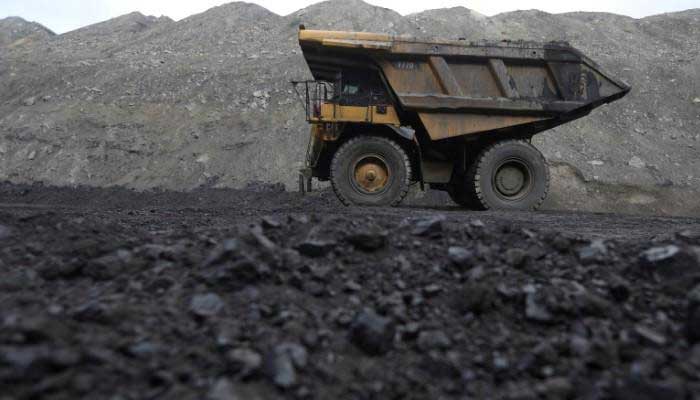Colliers in Balochistan hesitate to work after Hazara killing incident
Govt officials say up to up to 15,000 workers have downed tools since the incident, slashing production
QUETTA: After the tragic killing of 10 coal miners in Balochistan, thousand of colliers in the province have started showing reluctance to work in the industry.
According to officials and labour organisations, up to 15,000 workers had downed tools since the murder of the Hazara group, forcing around 200 mines to close and slashing production.
More than 100 mines were "still non-functional", said Abdullah Shehwani, the provincial head of coal mines.
Militant groups regularly extort protection money from colliery owners or kidnap workers for ransom. Failure to pay often results in deadly violence.
Refugees or economic migrants from Afghanistan make up a big part of the workforce -- especially from the marginalised Hazara community.
Ten Hazara miners were kidnapped by gunmen from a remote colliery in early January before being taken to nearby hills where most were shot dead, and some beheaded.
It prompted huge protests among Hazaras, who make up most of the Shiite population in Quetta.
Low pay
"Local workers ask for high pay and owners have to pay them compensation, in case of an accident," Habib Tahir, provincial chief of the Human Rights Commission of Pakistan, told AFP.
"Afghan refugees... work in the coal mines for low pay."
But Behroz Reiki, president of a mine owners´ association, said the current situation was also causing grave hardship for local communities.
"A closure of a coal mine means no jobs for the security guards and other employees -- those who work in other sections, including drivers, helpers and others," he said.
Atif Hussain, an official from the government´s mines department, insisted security had been beefed up.
"We have provided special security to the Hazara workers," he said, adding: "Now they move in a police escort."
Some mines had re-opened after government forces increased security, said MirDad Khel, the head of a local coal miners´ association, but many miners were still scared.
"Fifty per cent of the workers are still reluctant to return... they are still jobless," he told AFP.
"They don´t have money even for their day-to-day expenses -- even for one meal."
-
Security forces gun down 30 terrorists in multiple IBOs in KP: ISPR
-
MQM-P calls for new province in Sindh
-
US report validates Pakistan military edge over India: PM
-
Banned TTP poses serious threat to Pakistan security: UNSC panel
-
CM Afridi clarifies remarks on by-poll after ECP requests army deployment
-
Dubai sees 3.2m Pakistani passengers in 2025 as airport sets new milestone
-
Security forces kill 23 Indian proxy terrorists in KP's Kurram
-
Pakistan to construct island to boost oil exploration: report












